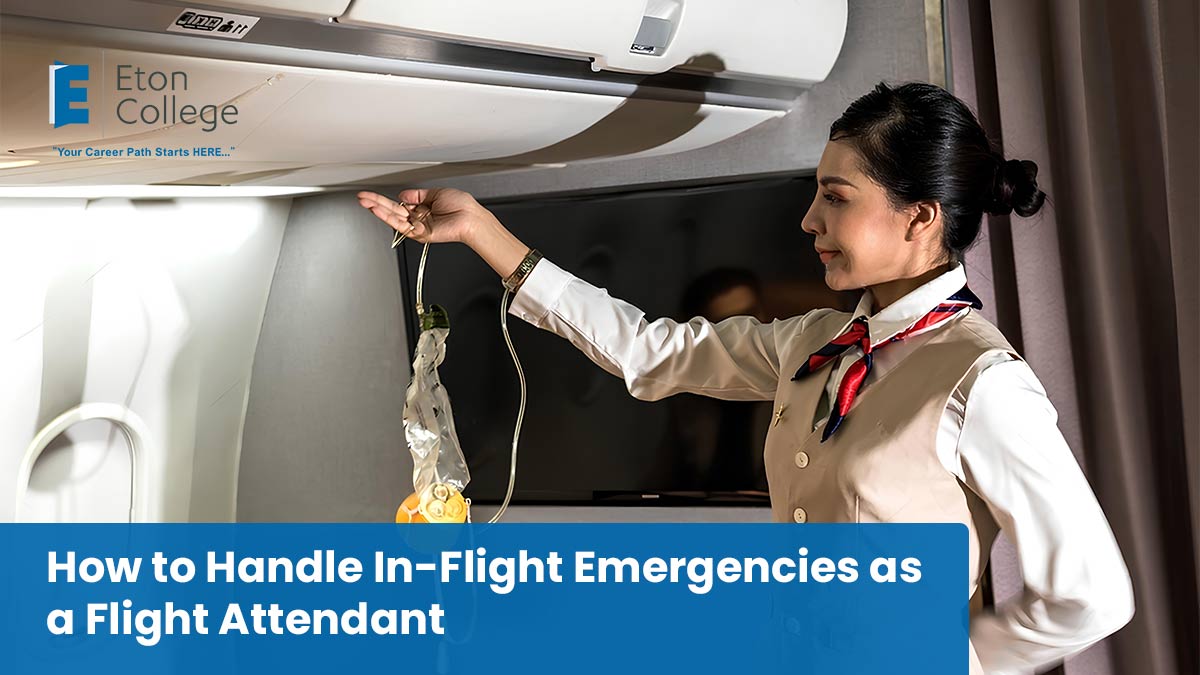- Problem-solving is a cornerstone of the flight attendant role, essential for ensuring passenger safety and satisfaction.
- Flight attendants often face unpredictable scenarios, requiring quick thinking and adaptability.
- Effective problem-solving enables attendants to handle emergencies, such as turbulence or medical incidents, with confidence.
- Strong problem-solving skills help flight attendants address passenger concerns and turn potential conflicts into positive outcomes.
- Problem-solving in aviation is often a team effort, emphasizing the importance of crew coordination.
Flight attendants are critical to assuring passenger safety and comfort during air travel. Their responsibilities go much beyond serving meals and beverages; they are trained experts capable of dealing with high-pressure circumstances. Problem-solving is one of the many skills that flight attendants must possess.
Let’s look at why this skill is essential and how it shapes the roles of these aviation professionals.
The Unique Challenges of Being a Flight Attendant
Air travel is fundamentally unpredictable. Flight attendants frequently encounter situations demanding rapid thought and immediate action, such as delayed flights or medical problems. Unlike ground staff, flight attendants work in an atmosphere with minimal external aid, making problem-solving a crucial ability. Some challenges they regularly encounter include:
- In-Flight Emergencies: Flight attendants must respond quickly and effectively to passengers facing medical issues or unexpected turbulence.
- Passenger Conflicts: Disputes among passengers can swiftly escalate, necessitating intervention to maintain order.
- Operational Issues: Technical delays or seating discrepancies often demand immediate and creative solutions to minimize disruption.
Why Problem-Solving Skills Matter
- Ensuring Safety: A flight attendant’s primary responsibility is to ensure the safety of everyone on board. Problem-solving skills enable them to assess risks, make informed decisions, and implement effective actions during emergencies. For instance, assisting passengers with oxygen masks during a sudden cabin pressure drop requires composure and efficiency.
- Enhancing Passenger Experience: A delayed flight or lost baggage can frustrate passengers. Flight attendants with strong problem-solving abilities can turn these negative experiences into positive ones by addressing concerns empathetically and offering practical solutions. A calm and helpful approach leaves passengers feeling valued and reassured.
- Adapting to Dynamic Situations: Every flight presents unique challenges, and a rigid approach won’t suffice. Being adaptable is a skill for flight attendants that directly correlates with their problem-solving capabilities. Whether managing a shortage of meals or comforting a nervous flyer, adaptability ensures seamless service.
How Problem-Solving Skills Are Developed
Flight attendants undergo rigorous training to refine their problem-solving abilities. Here’s how they hone this vital skill:
- Simulated Scenarios: Training programs include mock emergency drills, such as evacuations or medical emergencies, to prepare attendants for real-world situations.
- Team Collaboration: Flight attendants learn to coordinate with their crew, ensuring quick and efficient resolution of issues. Teamwork enhances their ability to pool ideas and implement the best solution.
- Emotional Intelligence Training: Understanding passenger emotions is crucial for resolving conflicts or calming distressed individuals. Emotional intelligence complements problem-solving by adding a human touch to technical responses.
Real-Life Examples of Problem-Solving in Action
- Emergency Landings: In the rare event of an emergency landing, flight attendants play a key role in ensuring passengers evacuate quickly and safely. Their ability to remain composed and direct others effectively can save lives.
- Medical Incidents: From administering first aid to coordinating with medical professionals on the ground, problem-solving is integral to managing in-flight health issues.
- Managing Passenger Expectations: When a flight is overbooked, skilled flight attendants can mediate solutions by negotiating with passengers, offering compensation, or rearranging seating to accommodate everyone.
Benefits of Problem-Solving Skills for Career Growth
The aviation industry values flight attendants who can think on their feet. Airlines prioritize candidates with strong problem-solving abilities because these professionals can handle stress, adapt to new challenges, and provide exceptional service. Beyond the immediate role, this skill opens doors to advanced positions like in-flight service managers or trainers.
How Eton College Prepares Aspiring Flight Attendants
Eton College’s Flight Attendant Preparation Program (FAPP) provides comprehensive training emphasizing problem-solving as a core competency. Through hands-on simulations, conflict resolution exercises, and emergency drills, students are equipped to manage the diverse challenges of a flight attendant’s role.
Additionally, the program integrates emotional intelligence development and cultural sensitivity training, ensuring graduates excel in providing exceptional passenger experiences while maintaining safety.
Located in Vancouver, a hub for aviation, Eton College offers industry-relevant certifications such as First Aid and CPR, enhancing employability. Graduates leave the program ready to navigate dynamic situations confidently and professionally, making them ideal candidates for airlines globally.
FAQs
1. Why are problem-solving skills essential for flight attendants?
Problem-solving skills enable flight attendants to handle emergencies, enhance passenger experiences, and adapt to dynamic challenges effectively.
2. Can problem-solving skills lead to career advancement for flight attendants?
Yes, airlines value these skills, and they open doors to roles like in-flight service manager or cabin crew trainer.
3. What types of emergencies require problem-solving from flight attendants?
Emergencies like medical incidents, turbulence, and emergency landings require quick decision-making and effective problem-solving.
4. How do flight attendants stay composed during stressful situations?
Through training in stress management and emotional intelligence, they learn to remain calm and effective under pressure.
5. Are problem-solving skills functional beyond emergencies?
Absolutely. They are applied in day-to-day tasks, like managing meal shortages or comforting nervous flyers.





